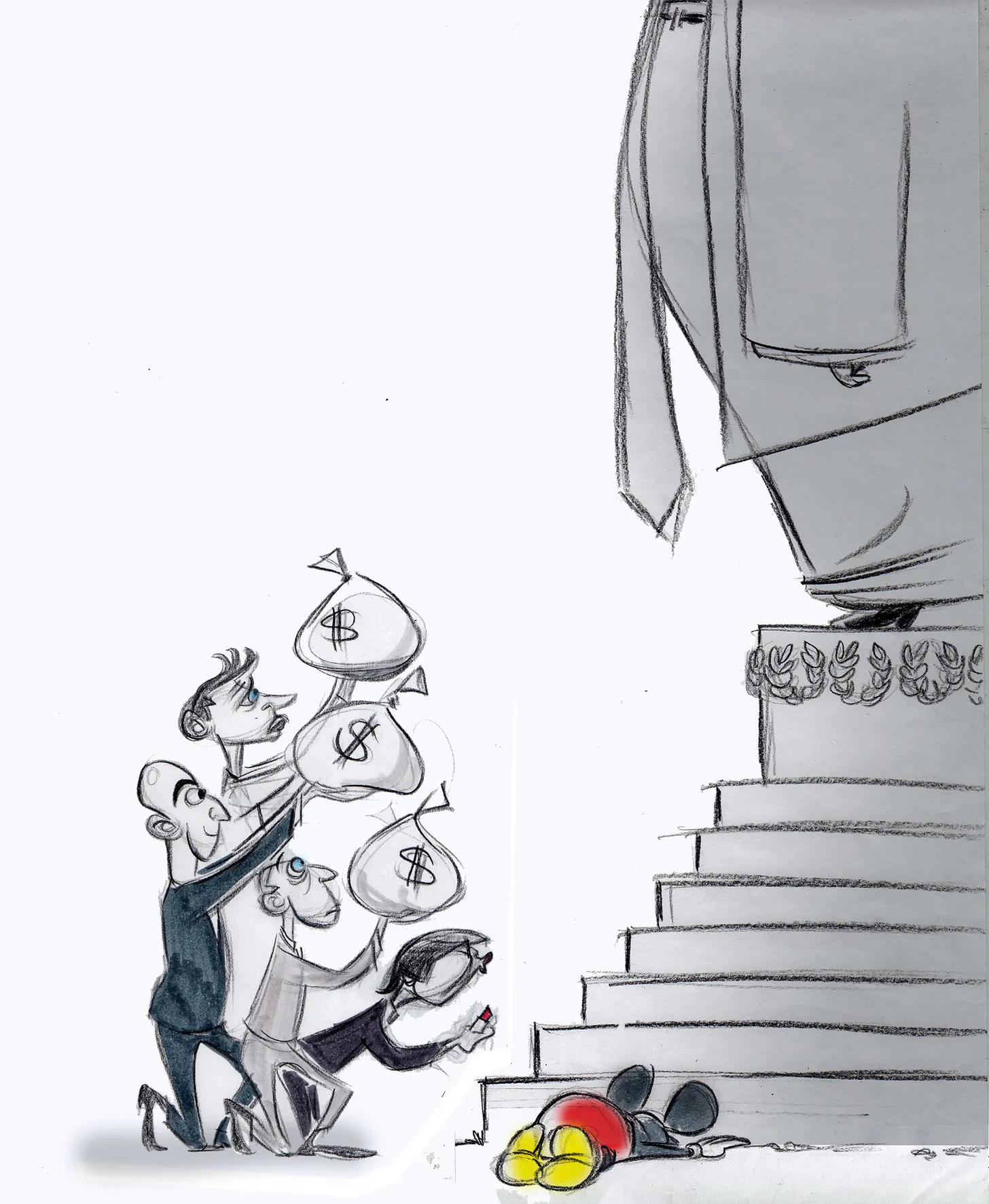The Washington Post’s pulled cartoon and presidential endorsement
By: Yancheng Zhao
Famous for exposing Watergate, The Washington Post has a long history of acting as a watchdog for wrongdoing in the government, given its location in the nation’s capital. However, its leadership’s recent actions to suppress editorial voices undercuts its values in promoting free press, a fundamental pillar of democracy.
At the beginning of January, Pulitzer Prize-winning Post cartoonist Ann Telnaes resigned after Editorial Page Editor David Shipley blocked her cartoon from publication. The cartoon depicted Washington Post owner and Amazon founder Jeff Bezos, Meta founder and CEO Mark Zuckerberg, and OpenAI CEO Sam Altman kneeling before Trump and offering him a sack of money. Los Angeles Times owner and president Patrick Soon-Shiong is also shown with a tube of lipstick while Mickey Mouse is lying face down at the bottom of the steps. Shipley’s decision to block the cartoon suggests that he did not like its content, whether it was due to personal beliefs or company policy.
“I’m very used to being edited. I’ve never ever, since I’ve worked for the Post in 2008, been not allowed to comment on certain topics by having cartoons being killed,” Telnaes told NPR. In her Substack, she says her cartoon was killed because of whom it targeted. “That’s a game changer… and dangerous for a free press,” she writes. Disagreements over opinions will always exist, and critical feedback can refine the nuance in someone’s stance, but entirely killing the piece does not benefit either the editor or writer. The Post leadership’s decision clearly indicated a shift in priorities from freedom of the press to corporate profit.
Shipley, however, claims that the choice was made to avoid publishing multiple columns on the same topic. “The only bias was against repetition,” he said. If that was the case, then Shipley had countless other options: modify the content to make it more distinct, delay the cartoon, publish it anyways, or place it exclusively on the website so it wouldn’t clutter the column. Instead, pulling the cartoon indicates another ulterior motive; he didn’t want the cartoon’s content to be seen, presumably to avoid provoking the oligarchs depicted in the scene.
This move is another event in a chain of controversies surrounding the Post. As the Post was preparing to endorse Kamala Harris for the presidential election at the end of October 2024, publisher and CEO Will Lewis decided not to make an endorsement for the first time since 1988. Lewis wrote in an opinion piece, “We are returning to our roots of not endorsing presidential candidates.” Shipley, hinting at a need for free thinking, argued that this would allow readers to make choices on their own about whom to vote for. However, the entire purpose of an editorial board is to provide opinions and offer arguments for thinking a certain way, and in that sense, an endorsement is almost the correct decision for the board.
Some people, including former editor-at-large Robert Kagan, who resigned after the decision, thought the move was to appease President Donald Trump, whom Bezos has clashed with previously. His companies, Amazon and Blue Origin, compete for government contracts, and a non-endorsement likely came as a move to soften any hard feelings in the event of a second Trump presidency.
“Democracy Dies in Darkness” is currently the Washington Post’s slogan. The goal of the slogan was to emphasize the Post’s “long-standing reputation for providing news and information with unparalleled analysis and insight.”
Now, the Post is afraid to uphold its mission and is, in its very own words and coverage, complacent in letting “democracy die in darkness.” The entire purpose of the editorial board is to provide opinions and convince readers of an argument. The board is separate from the newsroom, and an endorsement does not impede the credibility or impartiality of any reporting in the newsroom. One of the principles listed on the Post’s website is, “In the pursuit of truth, the newspaper shall be prepared to make sacrifices of its material fortunes, if such course be necessary for the public good.” The Post, indeed, has run contrary to this principle, putting its own material fortunes over the public good. This move sets a dangerous precedent for the media, whose editorial independence is vital to a free press, a core democratic principle.




Leave a Reply